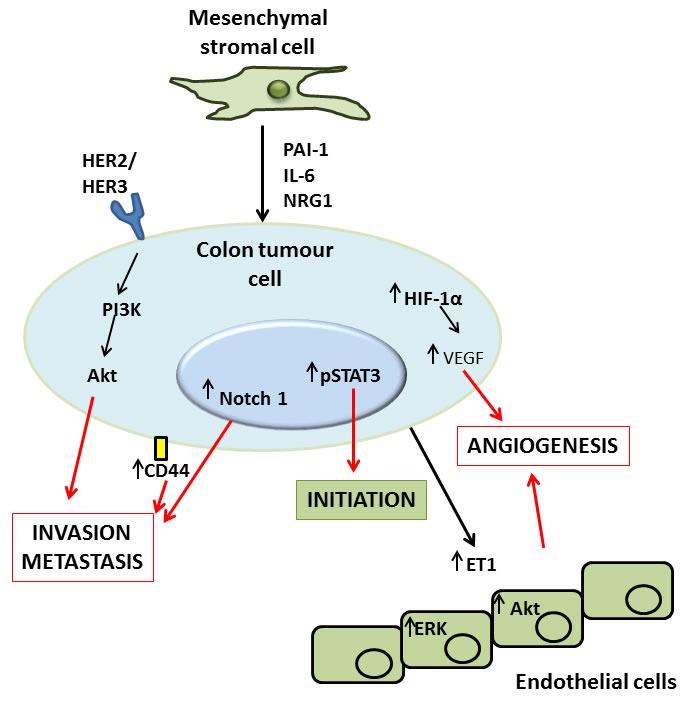Figure 2. Molecular mechanisms of MSC mediated induction of colon tumour cell initiation, angiogenesis, invasion and metastasis.

MSCs have been demonstrated to exert direct effects upon tumour cells via secretion of factors like plasminogen activator inhibitor (PAI)-1, interleukin (IL)-6 and neuregulin (NRG)1, or by activation of the human epidermal growth factor receptor (HER)2/3 receptor. The result of this signalling is activation of a number of pathways in the tumour, the net result of which is tumour promotion. Activation of HER2/3 leads to an increased invasive and metastatic capacity in the tumour via the phosphatidylinositol-4,5-bisphosphate 3-kinase (PI3K) and Akt signalling pathway. A similar effect on invasion and metastasis results from MSC-induced increases in Notch1 and CD44 signalling in colon tumour cells. Additionally, MSCs can induce phospho-signal transducer and activator of transcription (STAT)3 signalling in tumour cells which has been described as important in the initiation of tumourigenesis. Finally MSC induced increases in hypoxia-inducible factor (HIF)-1α, vascular endothelial growth factor (VEGF) and endothelin (ET)-1 can either directly, or indirectly via actions by tumour cells upon healthy endothelial cells, induce tumour angiogenesis, another important factor in increasing the growth and progression of tumours both by providing a means for the tumour to travel to distant sites, and delivering nutrients essential for the survival of the tumour.
